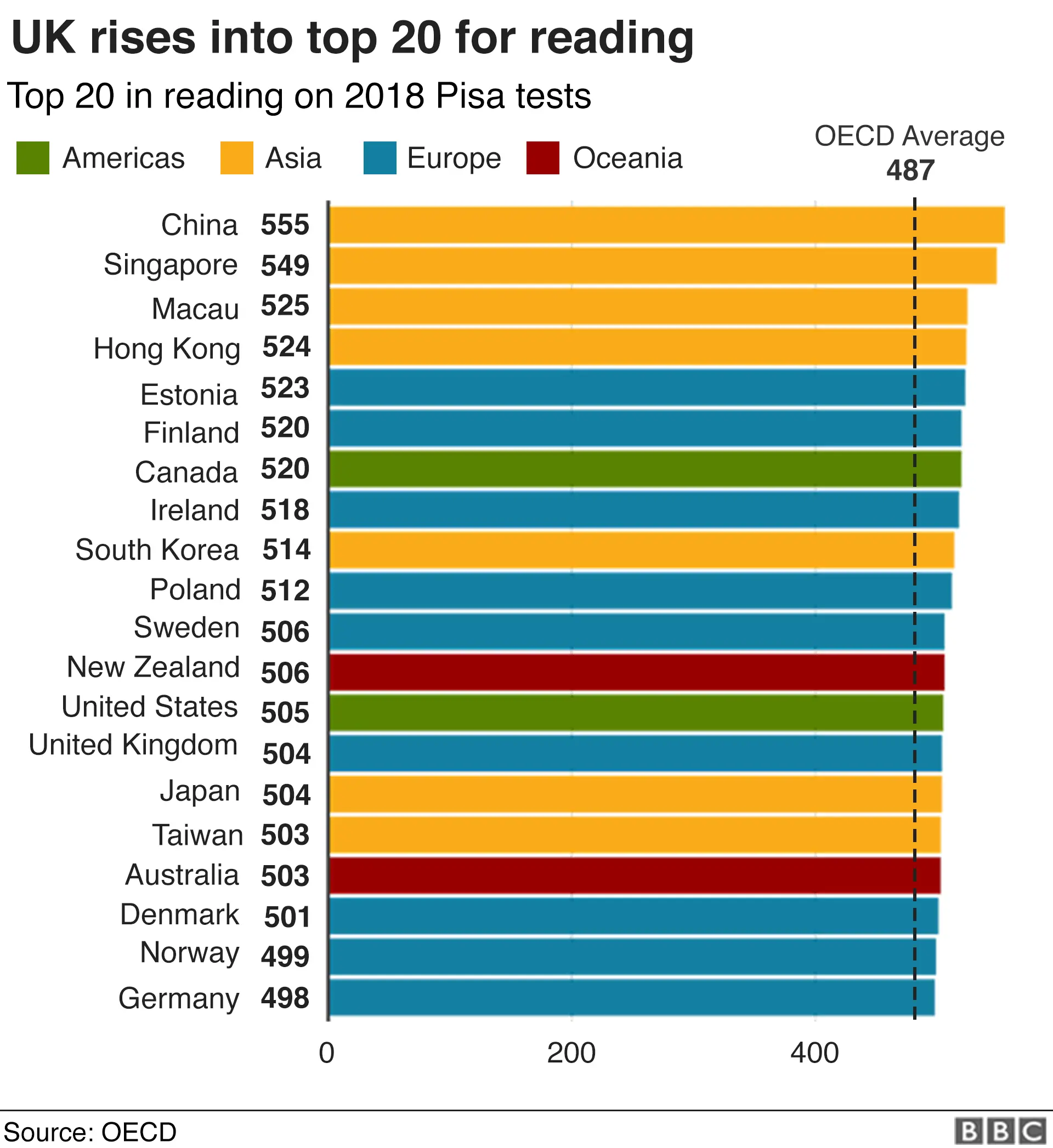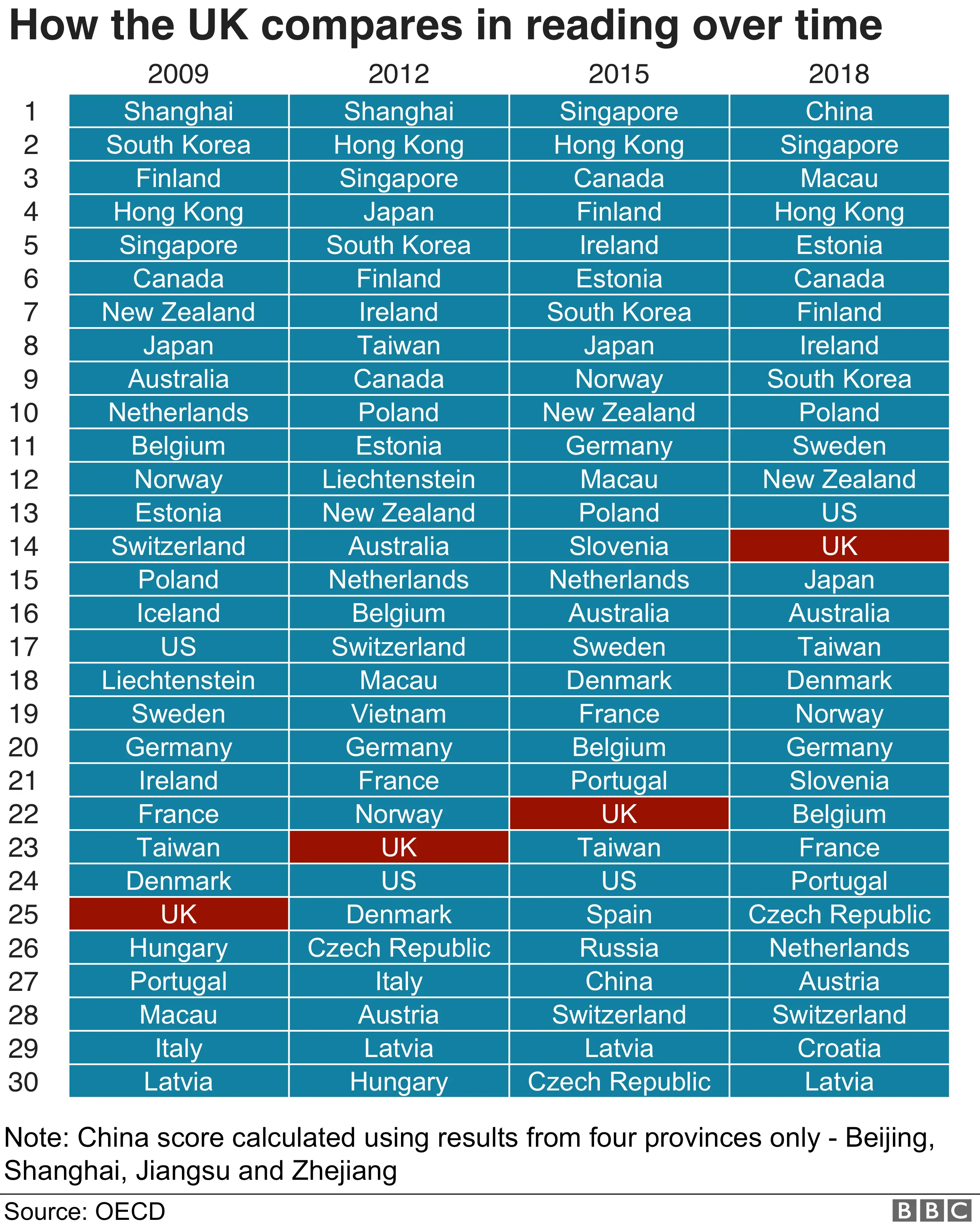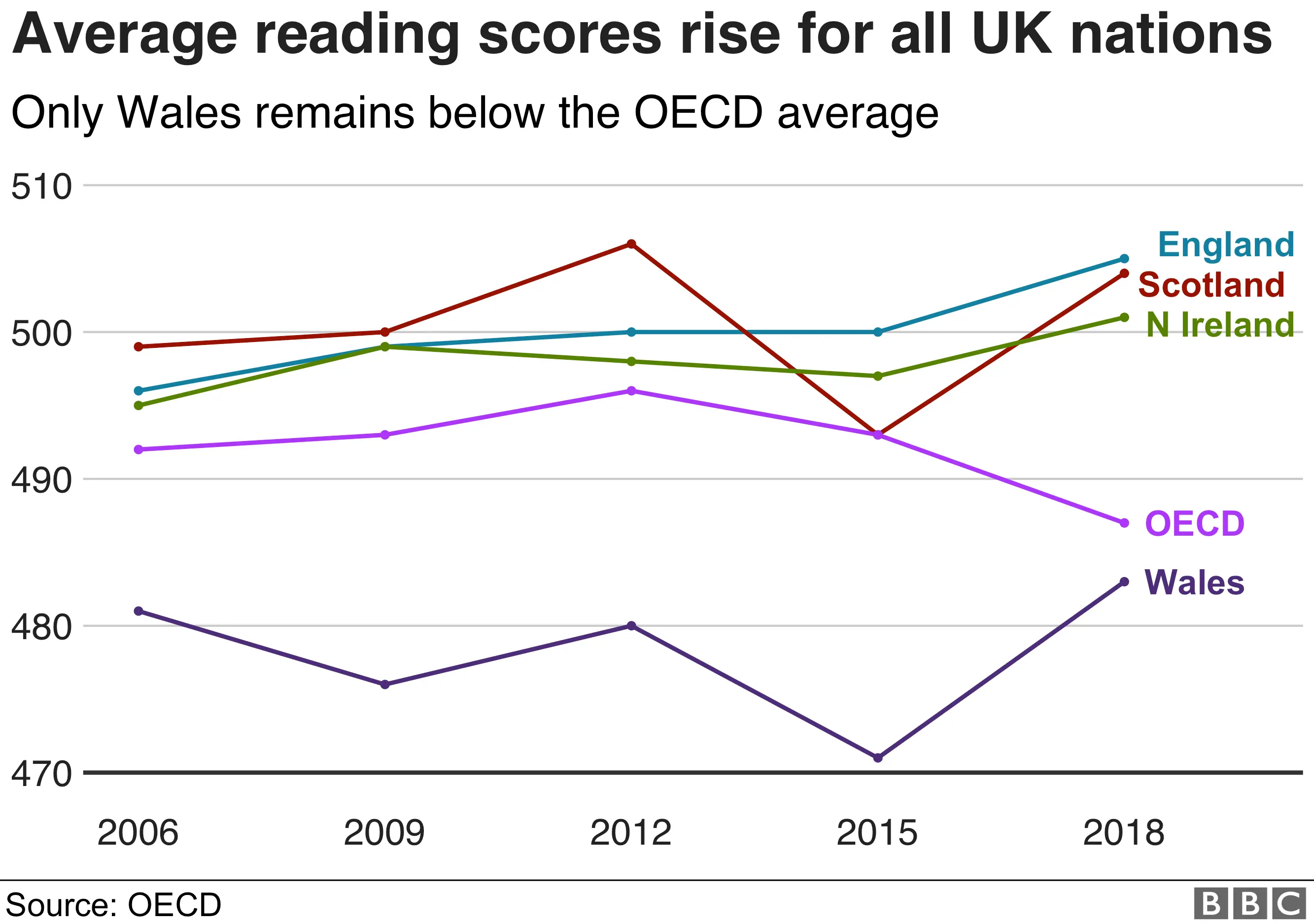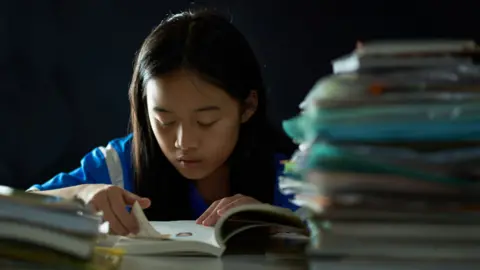Pisa tests: UK rises in international school rankings
The UK has made "positive" progress in international school rankings, based on tests taken by 15-year-olds in 79 countries and regions.
The Pisa tests, run by the Organisation for Economic Co-operation and Development, show the UK rising in reading, maths and science.
But the UK lags behind top performers such as China, Singapore and Estonia.
The UK's teenagers were also found to have among the lowest levels of "life satisfaction".
How did the UK perform?
Andreas Schleicher, the OECD's education director, said there were "positive signals" from the UK's results for the tests taken in 2018 - which he said showed "modest improvements".
- In reading, the UK is 14th, up from 22nd in the previous tests three years ago
- In science, the UK is 14th, up from 15th
- In maths, the UK is 18th up from 27th
The UK's maths results represent a particular improvement on three years ago, according to an analysis by the National Foundation for Educational Research (NFER).


But it says there has been no significant change for reading or science, with scores remaining broadly similar in Pisa tests since 2006, despite fluctuations in rankings.
This year's science score has shown a slight fall, in fact, but because other countries' results have also slipped, the UK has climbed upwards in the rankings.


At the current rate of progress, Mr Schleicher said, it would take a "very long time" for the UK to catch up with the highest achieving countries.
He suggested more investment in teachers' skills as a way to make improvements.
Who are the best in the world?
The global trend shows Asian school systems such as China and Singapore getting the best results, with Estonia and Finland among the highest achieving European countries and Canada performing strongly.


China is top for all subjects - but its score is calculated using results from just four of its provinces, Beijing, Shanghai, Jiangsu and Zhejiang, with a combined population of about 180 million.
Mr Schleicher said these Chinese provinces were very effective at making sure all pupils, including the disadvantaged, reach a high level.
And even the most deprived 10% of pupils in these provinces had better results than the average for the UK.
What's the picture within the UK?
Within the UK's four devolved education systems, England was the highest achiever in all three subjects.

Wales remained the lowest performing within the UK for all subjects, with Scotland better than Northern Ireland at reading and Northern Ireland outperforming Scotland at maths and science.
In reading tests, Wales scored below the average for OECD countries, while England, Scotland and Northern Ireland were all above average.
Despite a decade of changes in school policy in England and Scotland and different political directions, the scores in this year's reading tests remained very similar for the two education systems, as they were a decade before.
But are they happy at school?
As well as gathering academic test results, there were also questions about teenagers' wellbeing.
 Getty Images
Getty ImagesAnd the UK had some of the lowest scores of any country for "life satisfaction" and for feeling they had "meaning" in their lives.
In England, 66% of young people said they were sometimes or always worried - compared with an OECD average of 50%.
Mr Schleicher said more than many other countries, UK schools had a strong culture of individual competition rather than co-operation.
What are Pisa tests?
The Pisa tests are the OECD's Programme for International Student Assessment, in which the ability of 15-year-olds is tested every three years in reading, maths and science.
They are voluntary but an increasing number of countries take part, wanting to see how their pupils compare by international standards.


The tests have become an influential measure of education standards, offering a different perspective from national exams.
The rankings are based on samples of pupils in each country - with about 600,000 pupils having taken this round of tests.
The UK's figures are based on a sample of about 14,000 pupils taking tests in almost 460 schools.
What are people saying about the results?
"Pupils in England have continued to perform well in reading and science and have made significant improvement in maths," said Carole Willis, chief executive of the NFER, which published an official analysis of the UK results.
But she called for more investigation into why "pupils in England were more likely to have negative feelings".
Geoff Barton, leader of the ASCL head teachers' union, warned during an election campaign there was a risk of "over-claiming or over-blaming" about these results.
But he said attention should be paid to the low levels of wellbeing and the "great pressure" experienced by teenagers.
Sir Peter Lampl, founder of the Sutton Trust social mobility charity, said: "We need to do more to narrow the gap between rich and poor students, particularly for the highest performing ones."
Education Secretary Gavin Williamson said the rise in the rankings reflected the efforts of Conservative governments to have "more rigorous primary school assessments and more pupils are now studying the core academic subjects at GCSE".
But Kevin Courtney, joint leader of the National Education Union, said it was too early to draw any conclusions about the Conservatives' changes to education from these results.
Paul Whiteman of the National Association of Head Teachers said teachers and school leaders deserved credit for the results "given the very difficult circumstances in which they have been forced to operate over the past 10 years".
